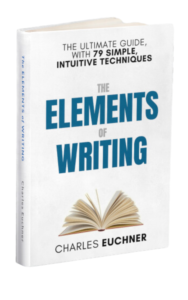To set your hero and other characters on their journeys, know who they are and what they’re trying to do.
Know their physical, mental, and spiritual qualities. Learn everything possible about their lives. Then give the reader the most relevant and, yes, the juiciest tales and details.
 Don’t just discover the surface facts of your characters’ lives. Find the backstories. Don’t just get your characters’ names. Find out how they got their names and what they mean. Don’t just talk about their jobs. Find out what it means to them emotionally.
Don’t just discover the surface facts of your characters’ lives. Find the backstories. Don’t just get your characters’ names. Find out how they got their names and what they mean. Don’t just talk about their jobs. Find out what it means to them emotionally.
Find the odd moments in characters’ lives, their lost loves, and moments of shame and glory. When you size up their bodies, look beyond the obvious—size, build, hair and eye color. See how they walk and react physically to events.
Most important: Be complete. Just as a P.I. gets his best stuff while tracking down unlikely leads, you will discover telling details when you fill in the details for each of these four categories:
Personal and Family Background
Name
Age and birthday
Birthplace
Parents’ ethnic background, upbringing, hopes and fears, and careers
Place in the family’s birth order
Relations with siblings and other relatives
Physical Characteristics
Body
Build
Hair and eye color
Sound of voice
Conversational tics
Physical peculiarities
Mannerisms while walking, talking, working, and playing
Biography
Pastimes as a child … and as an adult
Sidekicks and mentors
Intellectual and emotional influences
Rivals and foes at different stages of life
Not-so-good influences—skeptics, and tempters
Political leanings—and major political influences
What others notice first
How the character changes over the course of life
Turning points in life
Psychology
All-consuming desires
Pathological maneuver
Most admirable qualities
Least admirable qualities
Sexual identity
Philosophy of life
Optimism or pessimism
Energy level
What the character does when alone
What the character thinks about when alone
Greatest fears at different stages of life
Gathering so much information might seem like overkill. But you need to know everything about your characters before you decide what’s important.
In my Elements of Writing seminars, students join together to create a dossier for both real and imagined characters. Here’s a character created by students at Hillhouse High School in New Haven:
Jodie is a sixteen-year-old orphan being raised by her grandparents. Slender and athletic, with brown hair and hazel eyes, Jodie still struggles with the trauma of her parents’ deaths in a plane crash. She lights candles in her room and holds seances to connect with her lost parents; in a bit of “magical thinking,” she thinks she can somehow bring them back. She can be mean at times, as her two older brothers will attest. She’s energetic but deeply pessimistic. She has a crush on a boy named Cody, but a cheerleader named Heather already has won his affections.
Now Jodie is on an airplane to Egypt, as part of a school field trip. She saved money for the trip because she thinks she can somehow connect with her parents’ spirit in this ancient land. She sits next to a middle-aged woman who reminds her of her mother. And they talk . . . and talk . . . and talk. In a way Jodie has never experienced, this woman is calming her down.
On this day, her sixteenth birthday and the eighth anniversary of her parents’ death, Jodie just might have a chance to overcome her fear of losing someone close.
Then the pilot’s voice crackles on the PA system. There’s some trouble with the fuel tank or one of the engines . . . or something. Whatever the pilot says, people respond with panic. Now, just as Jodie has found a soulmate for the first time since her parents’ death, the trip could end in tragedy.
What’s Jodie going to do?
This exercise does more that helping you to know a character well. It also helps to tell the story. In fact, it’s almost impossible to create a dossier without also beginning to tell the story.
Create a dossier for your own life. Fill in the blanks, as if you were writing a memoir. Be honest. Use as many details as possible. Include the material that you hope no one ever discovers. You might be surprised by the power of your memories and emotions—and by the insights that come with those memories and emotions.


